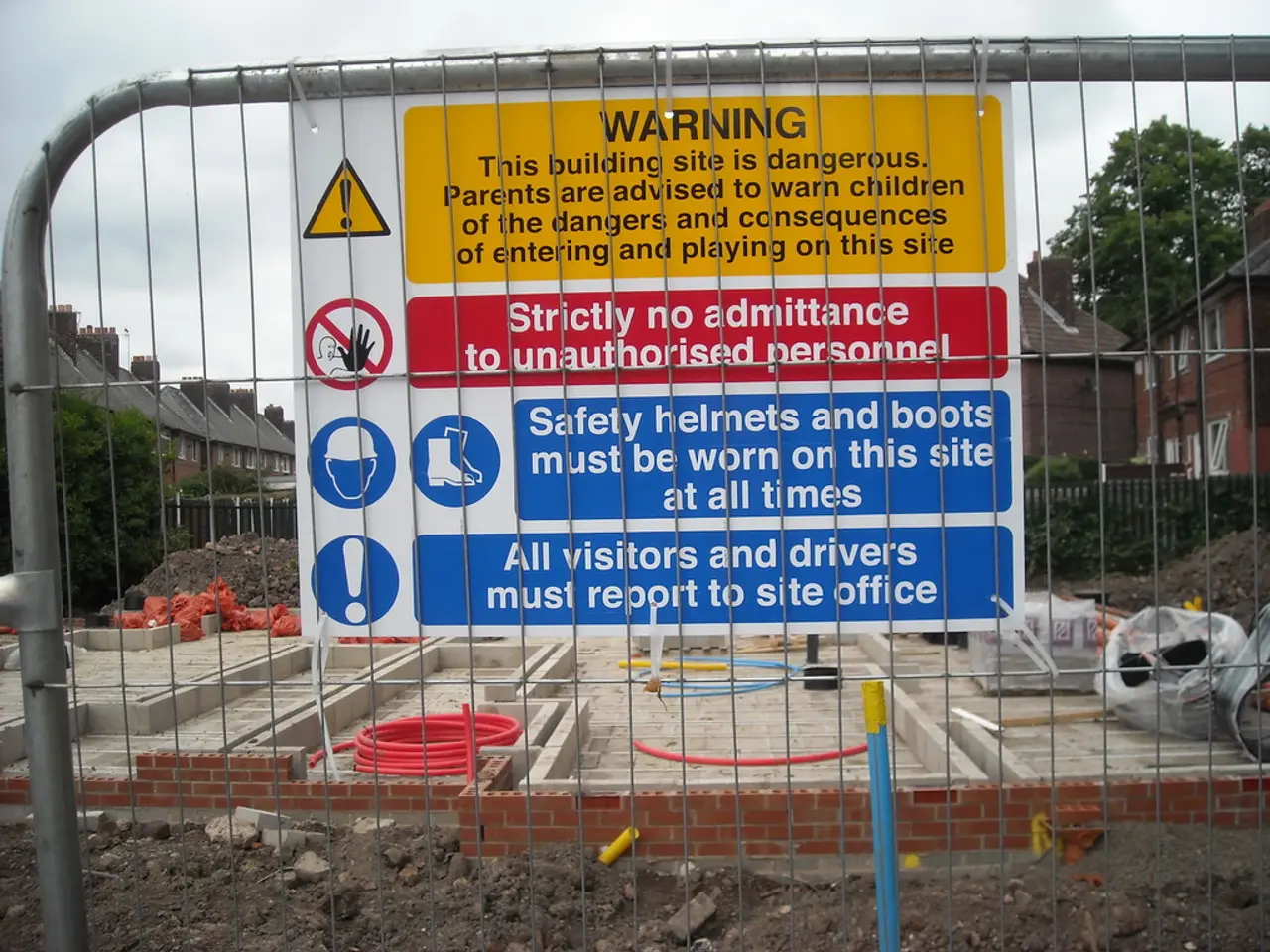Homeowners may incur a £5,000 fine for omitting to supply an Energy Performance Certificate (EPC) rating.
In the UK, every residential property requires a valid Energy Performance Certificate (EPC) when it is built, sold, or rented. This certificate, which is valid for 10 years, is a legal requirement that ensures the property's energy efficiency and environmental impact are assessed.
To obtain an EPC, homeowners must hire an accredited domestic energy assessor (DEA). This professional will inspect the property, evaluate factors such as the heating system, type of windows, insulation, and overall energy use and carbon dioxide emissions. Once the assessment is complete, the assessor will issue an official EPC document containing the property’s energy efficiency rating and environmental impact rating along with recommendations to improve energy efficiency.
Homeowners of older homes, especially those that have never been rented or sold since the certificate's introduction, may not have an EPC. In such cases, it's essential to arrange for an energy assessment as soon as possible to avoid fines. For homes with fixed services like heating or air conditioning, the EPC should reflect the energy efficiency of those systems.
If a homeowner does not have an EPC or has an outdated one, they may be fined. Sellers or landlords of residential properties can face fines of up to £5,000 if they do not have an EPC. Residential properties may also incur a fine of approximately £500 if asked to present an EPC but fail to do so. Commercial properties face higher penalties, but these mainly apply to business premises.
If a local authority requests a copy of the EPC, homeowners must provide it within seven days or risk a further fine of £200. However, homeowners can contest penalties, request a review, or appeal the decision in court.
It's crucial to check that the EPC is up to date for properties being sold or rented. If employing an estate or rental agent, they are responsible for ensuring an up-to-date EPC is available within seven days of marketing the property. Simple upgrades, such as installing energy-efficient light bulbs, improving insulation, or replacing old boilers, can make a noticeable difference in a property's energy score, making it more attractive to potential buyers or tenants.
Improving a property's energy efficiency before the assessment can help boost the EPC rating, potentially increasing the property's value and making it more appealing to buyers or tenants. For homeowners in the UK, ensuring compliance with EPC requirements is essential to avoid fines and maintain the value of their properties.
[1] GOV.UK. (2021). Energy Performance Certificates (EPCs). [online] Available at:
[2] GOV.UK. (2021). Energy Performance Certificates (EPCs) - for homeowners. [online] Available at:
[3] GOV.UK. (2021). Energy Performance Certificates (EPCs) - validity. [online] Available at:
[4] GOV.UK. (2021). Energy Performance Certificates (EPCs) - penalties. [online] Available at:
- To abide by the UK law, homeowners must possess a valid Energy Performance Certificate (EPC) for their properties during building, selling, or renting; the certificate evaluates factors such as design, insulation, solar energy use, and heating systems.
- Homeowners can hire an accredited domestic energy assessor (DEA) to guide them in obtaining an EPC, which rates the energy efficiency and environmental impact of the home and proposes improvements to enhance energy performance.
- Properties that lack an Energy Performance Certificate or have outdated ones might incur fines, with sellers or landlords facing penalties of up to £5,000, while homeowners may face fines of around £500 for failing to present the EPC upon request.
- If a local authority demands a copy of the EPC, homeowners are obligated to provide it within seven days, or else they may face another fine of £200; however, penalties can be contested, reviewed, or appealed in court.
- Before marketing a property, estate or rental agents must ensure an up-to-date Energy Performance Certificate is accessible within seven days. Simple home-improvement steps, like improving insulation or installing energy-efficient solar panels, can raise the property's energy score, making it more desirable to potential buyers or tenants.
- Enhancing a property's energy efficiency before the assessment can increase the EPC rating, potentially amplifying the property's value and making it more appealing to prospective buyers or tenants interested in a sustainable and energy-efficient home-and-garden lifestyle.




